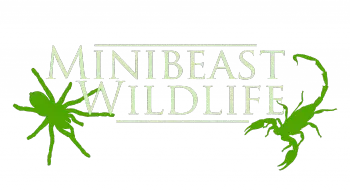SPECIES PROFILE
Urodacus elongatus
Flinders Ranges Scorpion
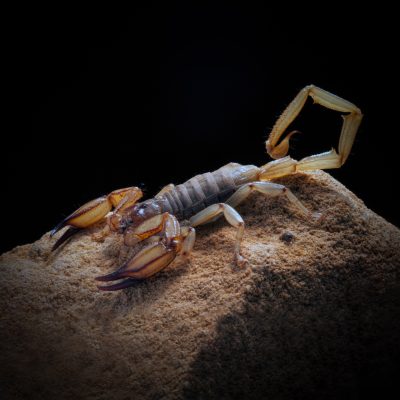
Flinders Ranges Scorpion (Urodacus elongatus)
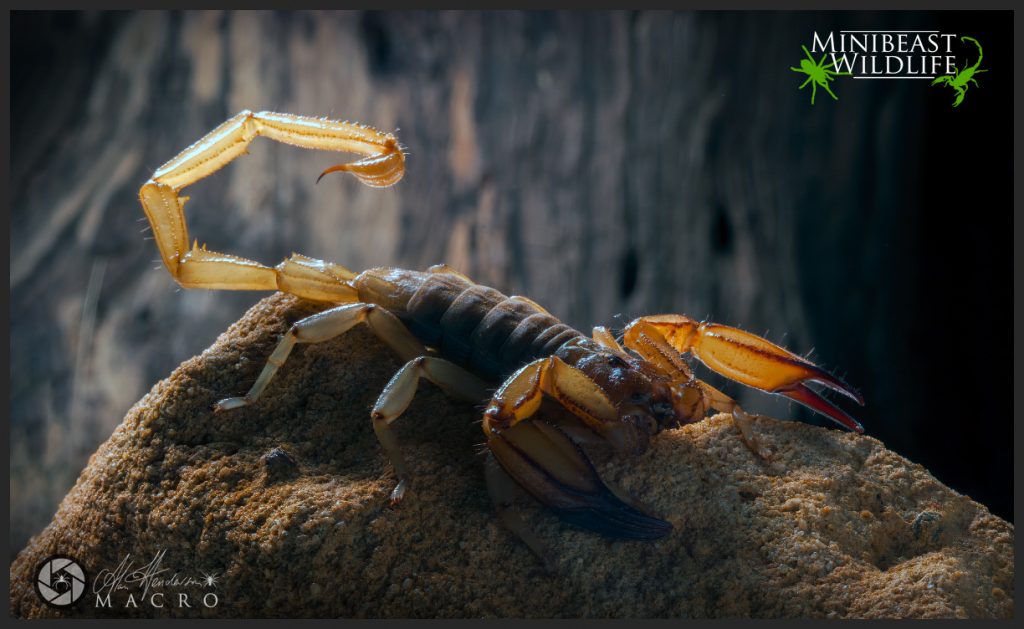
Flinders Ranges Scorpions (Urodacus elongatus) are a large species of Australian scorpion from semi-arid regions in South Australia . They are a very powerful scorpion with large claws and a sizable sting, however they pose no threat to humans as their venom is only mild. They are popular pets in Australia and for sale online and in many pet stores. Unfortunately they are a species that is potentially vulnerable in the wild due to the pet trade. Due to being relatively easy to find, they are targeted by poachers and are being commercially exploited by unethical invertebrate dealers.
Distribution and habitat
Flinders Ranges scorpions are found in the rugged rocky landscapes of the Flinders Ranges region in South Australia. This area is characterized by its semi-arid climate with hot summers and cool winters. They are adept at inhabiting rocky crevices and burrows, where they seek refuge from extreme temperatures and predation. They are ‘scrape dwellers’ – creating shallow scrape-like burrows beneath the rocks within their habitat.
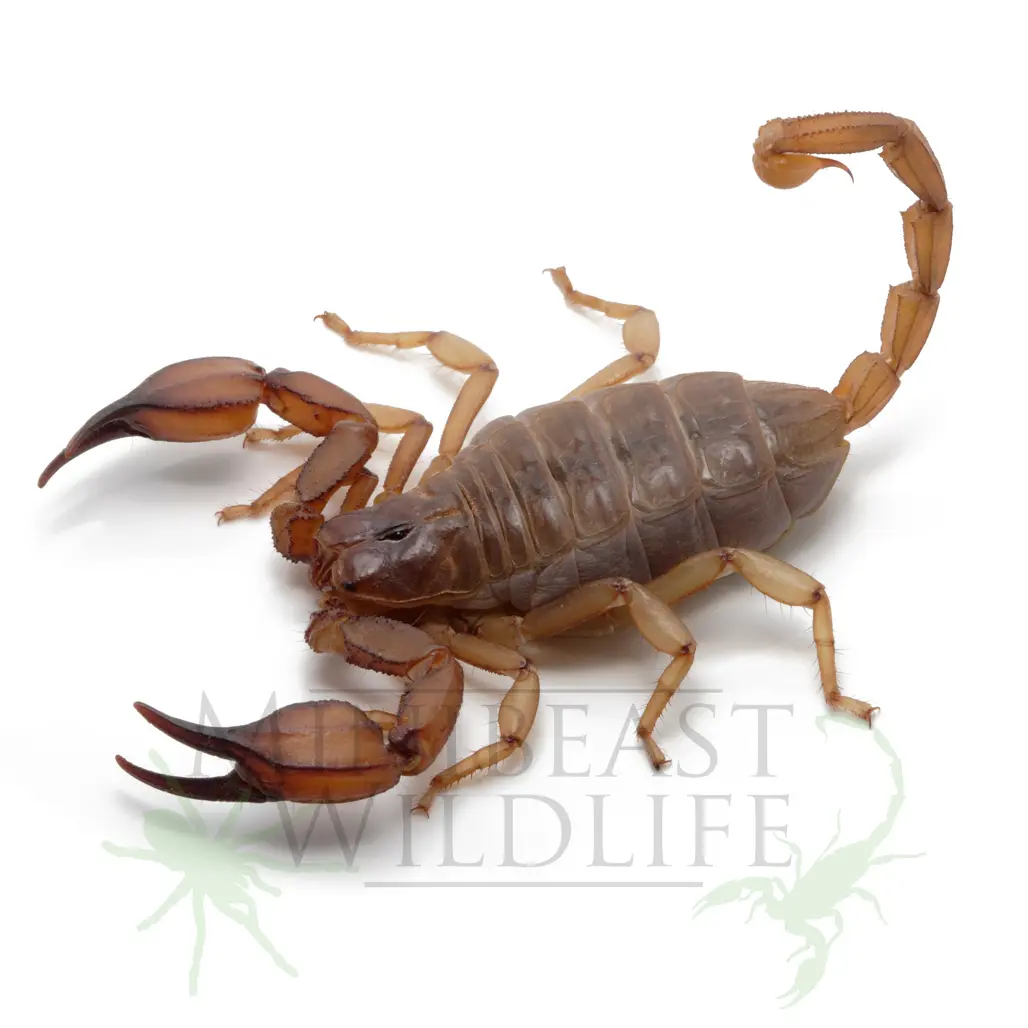
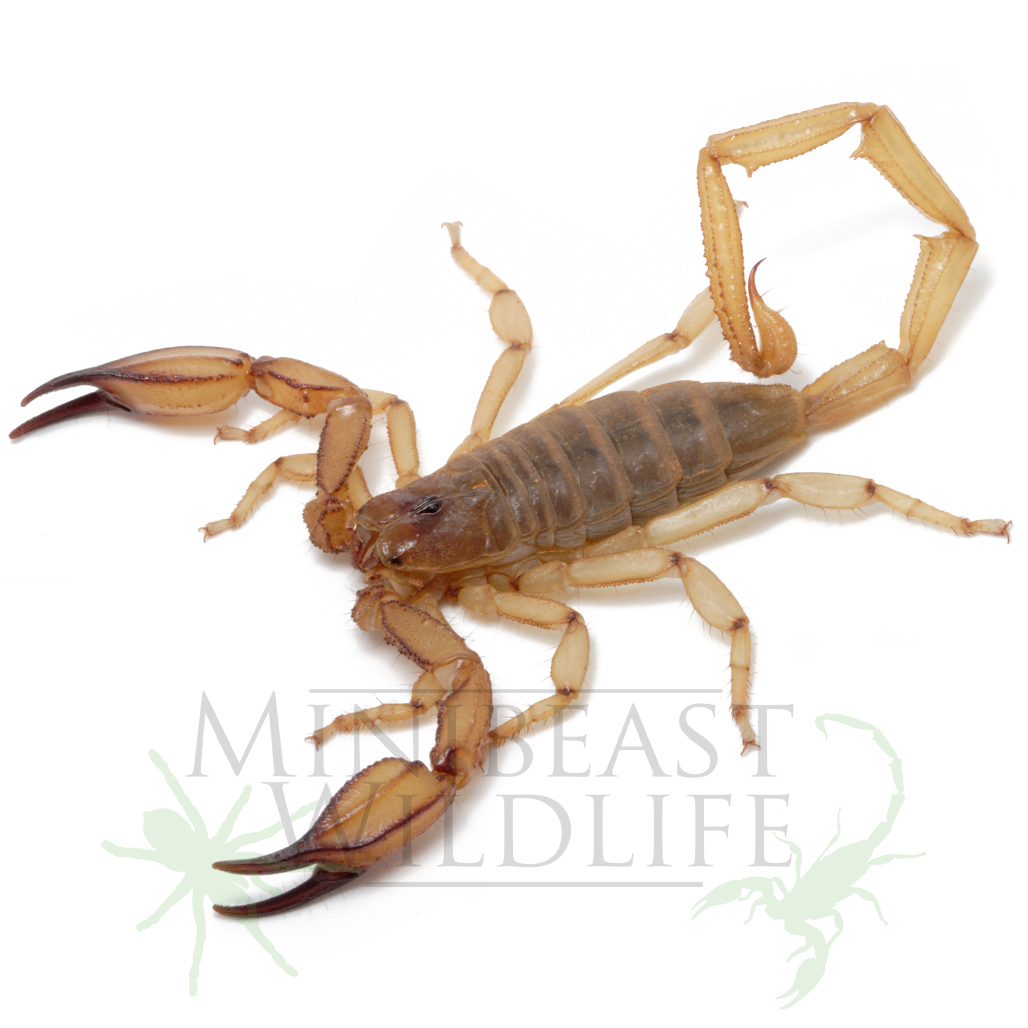
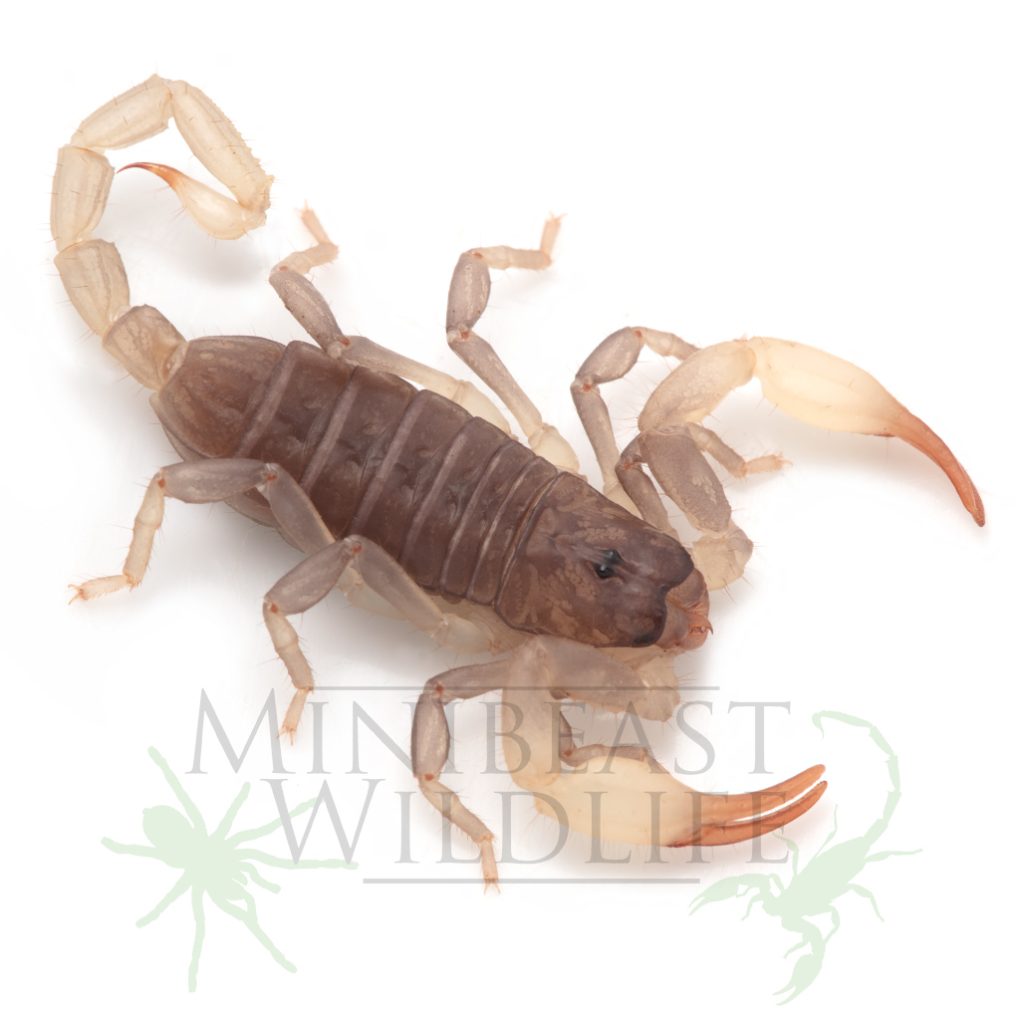
Size
These scorpions are relatively large with adults typically ranging from 100 to 120mm in length (including their tail). Adult males are longer than females with a considerably elongated tail.
Behaviour
Flinders Ranges scorpions are nocturnal hunters, preferring to remain hidden during the day and becoming active at night. They wait in ambush for prey at the entrance or just outside their burrows. Prey is grasped by their powerful chelae (claws) before being stung. They are usually solitary animals and are generally not aggressive unless provoked. When threatened, they may exhibit defensive behaviors such as raising their tails in a defensive posture and opening and extending their claws.
Diet
As carnivorous predators, Flinders Ranges scorpions feed primarily on insects, spiders, and other small ground-dwelling invertebrates. They use their powerful pincers to capture and immobilize their prey before delivering a venomous sting to facilitate feeding.
Keeping Flinders Ranges Scorpions as pets
Due to their impressive size and relatively calm temperament, Flinders Ranges scorpions have gained popularity among Australian invertebrate enthusiasts. However, as they are one of the key species being poached with over-collection being a real threat to their survival, acquiring captive-bred specimens is very important. Avoid anyone selling large or adult specimens as these are almost certainly wild-caught.
Housing: Provide a secure terrarium with ample hiding spots such as flat rocks or artificial caves. A substrate of sand and coco-peat mimics their natural environment and allows for scrape burrowing.
Temperature and Humidity: Maintain temperatures around 20-25°C are ideal, although lower temperatures overnight or seasonally are not harmful. Humidity levels should be moderate, as these scorpions are adapted to semi-arid conditions.
Feeding: Offer a varied diet of live insects such as crickets, mealworms, and cockroaches. Feeding frequency varies with age and activity level but typically involves offering food every few days.
Handling: While they are not typically aggressive, handling should be minimized to reduce stress for the scorpion.
Visit our Breeding Room to see when we have Flinders Ranges Scorpions for sale, and check out our Care Guide for more information about their care.
